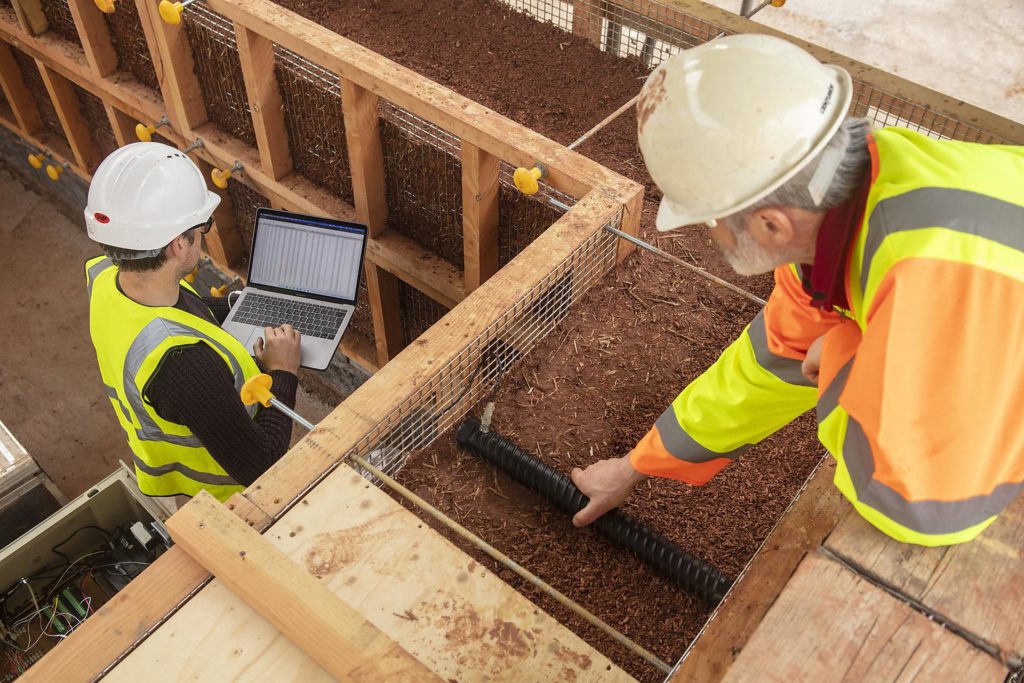Plymouth University is piloting the use of an ancient building material called cob to construct a new generation of energy-efficient homes.
They have started building a single storey 32-square-metre lab and classroom next to the university’s sustainability hub out of the material which is a mix of soil, water, straw and hemp.
Principal investigator and professor of environmental building at the art, design and architecture school Steve Goodhew said: “We will create a living lab and demonstration site that will become the centre of attention for a wide range of people – from construction professionals to built environment students.”
Contractor Chris Noakes and the university’s estates team are expected to complete the building in eight months. Researchers will monitor the performance of the new walling material using sensors to measure energy use, its life cycle and indoor air quality. The results will be shared with future building designers, contractors and interested stakeholders.
Research set to influence industry
The University’s Sustainable Earth Institute director Professor Will Blake said: “Students and visitors to the site will be able to engage with this potentially industry-influencing ongoing research project.”
Interreg V France (Channel) England and the European Regional Development Fund have invested more than £3.5m in the second phase of the CobBauge project where a full-sized building will also be constructed in France.
The first phase developed a new method of using cob that reduced the need for heating and mitigated overheating during warmer weather. Researchers studied a range of different soil and fibre mixes creating a double-layered composite wall combining a denser mix with a lighter weight version for strength and insulation.
Brokers Hank Zarihs Associates said lenders were interested in the science of greener materials and were keen to offer construction loans to developers using low carbon emission products.
Tokyo University researchers announced recently that they had developed a new form of concrete that can reduce emissions from the construction industry. Calcium carbonate concrete is made from waste concrete and carbon dioxide from the air or industrial exhaust gases. It shows promise as a future construction material, especially in places where natural resources are limited.

